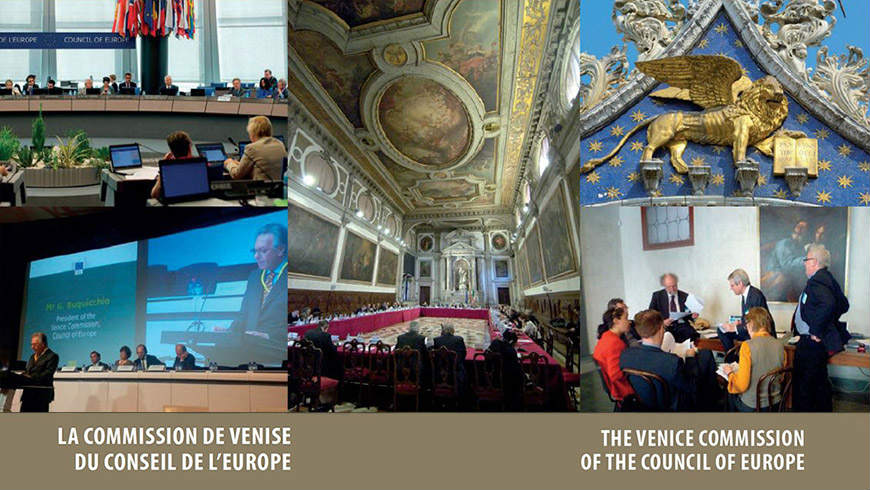Venice Commission adopted important opinions on Albania and Kosovo in the framework of the Expertise Co-ordination Mechanism (ECM). For Albania the opinions were focused on the amendments to the Law No. 97/2013 “On Audiovisual Media Service” and the appointment procedure of the Constitutional Court’s members. For Kosovo the opinion addressed the provisions of the draft Criminal Procedure Code and suspension of officials from office.
On the first request regarding Albania, submitted by the Monitoring Committee of the Council of Europe’s Parliamentary Assembly, the Venice Commission concluded that the draft amendments, as they are formulated now, raise important issues on freedom of expression and media pluralism in Albania and are not ready for adoption. The currently discussed proposal consists of extending the jurisdiction of the Albanian Media Authority and their Complaints Committee to the online media and gives this authority new administrative power. The law in the current form would most likely have a “chilling effect” suppressing free political speech on the Internet. The opinion emphasised the necessity of ensuring ”the effectiveness of the existing legal and, in particular, judicial remedies combatting defamation and hate speech committed via online publications”.
In its second opinion on Albania, focusing on the appointment of judges to the Albanian Constitutional Court, the Venice Commission notes that the original constitutional design for the appointment of judges to the Constitutional Court was correctly interpreted by the Albanian Assembly but could not function as expected, as a result of the exceptional number of judges to be replaced due to the ongoing vetting process and of the lack of institutional co-operation between the President and Parliament, which resulted in the Constitutional Court being dysfunctional. In its communication the Venice Commission underlines the absolute need for dialogue and co-operation among state institutions.
The opinion of the Venice Commission for Kosovo reveals that the draft provisions are largely in line with the European Convention on Human Rights and Fundamental Freedoms. However both provisions may lack precision that results in intended safeguards not being incorporated in such a manner that the draft amendments are unambiguous and easy to implement. Therefore, the Venice Commission invites the legislator to re-examine the two draft amendments.
The Expertise Co-ordination Mechanism is a part of the EU and Council of Europe joint programme Horizontal Facility for the Western Balkans and Turkey 2019-2022, which aims to support Albania, Bosnia and Herzegovina, Kosovo, Montenegro, North Macedonia, Serbia and Turkey in their compliance with European standards.
*This designation is without prejudice to positions on status, and is in line with UNSCR 1244 and the ICJ Opinion on the Kosovo Declaration of Independence.


